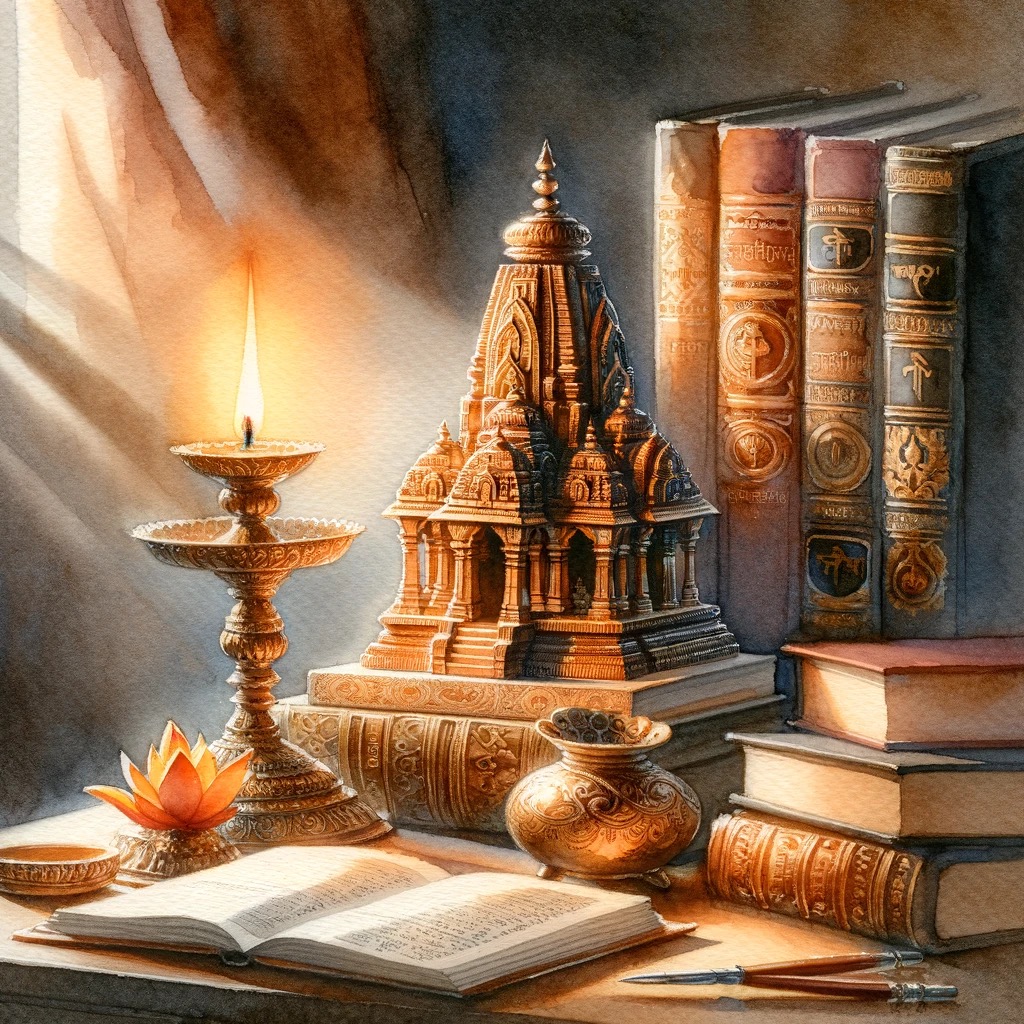World Civilizations - An Indic View
India is unique, but how is its uniqueness defined in relation to other civilizations? This course will contrast the various civilizations of past and present and bring out the Indian position.
Overview
This course is where we unpack all this and more. This is World Civilizations - An Indic View
Contents
Module 1
What is Civilization?
Module 2
Origins, Influential Thinkers and Leading Models
Module 3
Comparisions
Module 4
Comparative Analysis
Module 5
Civilizational Models
Module 6
Indian Civilizational Thinkers
Module 7
Caturasūtra of Indian Civilizational Thought
Module 8
Way Forward- An Indic View
Session Recordings

Module 1
What is Civilization?

Module 2
Origins, Influential Thinkers and Leading Models

Module 3
Comparisions

Module 4
Comparative Analysis

Module 5
Civilizational Models

Module 6
Indian Civilizational Thinkers

Module 7
Caturasūtra of Indian Civilizational Thought

Module 8
Way Forward- An Indic View
Sign up to view session recordings
These recordings are part of our member-only exclusive access.
Upgrade to get full access to all course recordings and other membership benefits
Key Takeaways
Essential Svayṃbodha and Śatrubodha
An informed understanding of Indian civilizational consciousness and of Western civilizational thought.
Core Lexicon
The key words, terminology and definitions that constitute the field of comparative civilizations.
Precise Pūrva Pakṣa
The Indian mind is traditionally tuned to truth-seeking, and this course will equip participants with both the merit and the critique in the prevailing Western models for civilization.
New discoveries
Śrī Aurobindo explained how “The human mind, in its progress, marches knowledge to knowledge, renews and enlarges previous knowledge- often obscured or overlaid, seizes on old imperfect clues and is led by them to new discoveries.” This course will give participants an exercise in enlarging previous knowledge and being led by that to new discoveries.
Who is this course for?
- We aim to lay essential ground here, a reclamation of distorted memory and the assertion of renewed civilizational identity. Deep to the far horizon of the future must our gaze extended, the dṛṣṭī rooted in a wisdom accumulated over millennia. And we will do so with clarity. With the confident lamp of truth and knowledge. This course is structured as a comprehensive literature review followed by attempted new thinking. Anyone interested in the prevailing understanding of ‘civilization,’ the ways in which Western thought has looked at India, and how a line of dedicated Indian thinkers have asserted the Indian view with consistency will find significant takeaways for themselves. As a wide-ranging study it will cover several fundamentals and frame new articulations, which will interest those keen on meta-thought and analysis. The content will provide rich context to anyone looking to develop a confident and informed position on the matter of ‘civilization state.’ Finally, with the design framed as pūrva pakṣa - khaṇḍana - siddhānta, this course is for any Indian who wishes to have an intellectually and academically solid insight into the biases inherent in the Western view of other civilizations; and/or on the unique and global value of being informed by the Indian gaze on comparative civilizations.
Know your Instructor

Amritanshu Pandey
Amrit combines more than a decade of professional experience rooted in product development, with a lifetime of engagement with ancient Indian history. He writes on history, civilizational thinking and design.
Our Draṣṭā online courses are designed to help you in your learning journey
Become a part of the community and engage, share, discuss and deepen your learnings
Interact with the course instructor through live sessions
Access to session recordings and materials


Become a member and dive into the Indic universe
Brhat subscription gives access to exclusive member-only content rooted in the Dharmic worldview.
Starts at ₹500 per month.